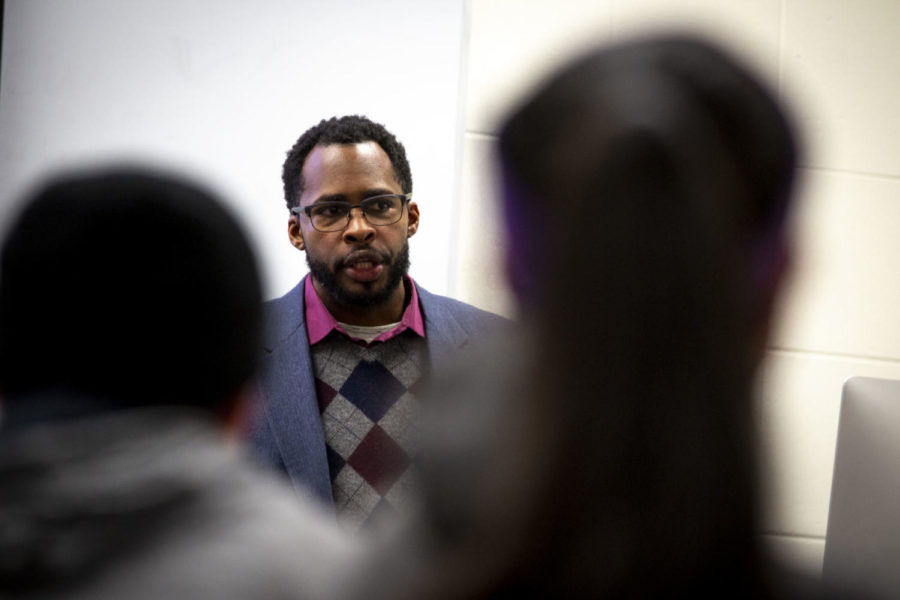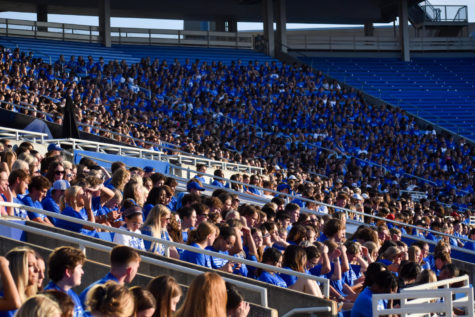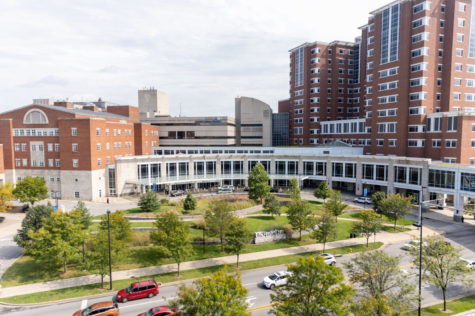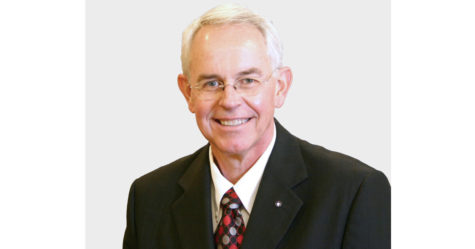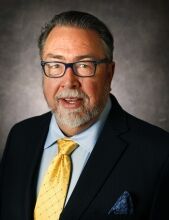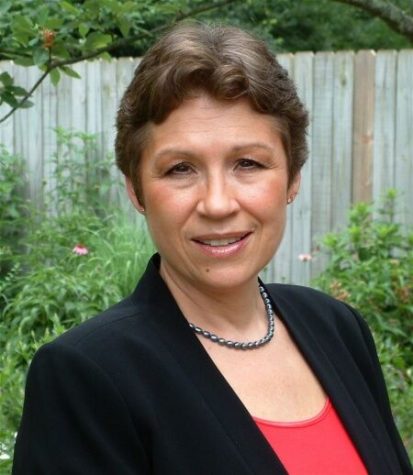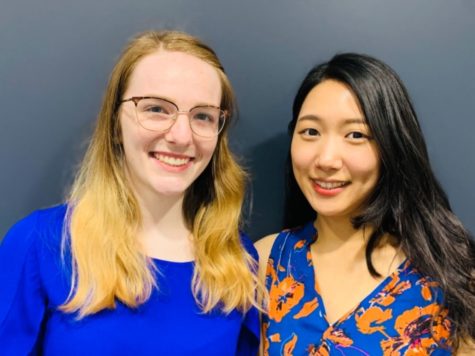Changing the atmosphere: Recruiting diverse faculty at UK remains ‘intentional’
December 3, 2018
Despite several recruiting challenges, Dr. Sonja Feist-Price, vice president for institutional diversity, said UK is on track to meet its 2018-2019 goal for faculty diversity on campus.
She said UK is on track to have underrepresented minorities in UK’s faculty at 7.9 percent for this year, up from 7.4 percent last year and up from 6.4 percent in the 2015-16 fiscal year. This is part of UK’s Diversity Plan, a five-year initiative that seeks to improve diversity and inclusivity on campus.
Several prominent news organizations reported at the beginning of the 2018 fall semester that student diversity was dropping. One Associated Press story reported that the number of black students dropped 11.9 percent, from 420 in 2017 to 370 in the fall 2018 incoming class. UK’s all-time high for black students was 429 in 2014. The AP also reported that the number of students who identify as two or more races jumped from 199 to 238.
Feist-Price said this drop can be attributed to UK’s losing several recruitment officers who mainly recruited in areas with mostly minority populations. It was not caused or influenced by a lack of faculty diversity, she said.
Feist-Price said she recruits underrepresented faculty from conferences and is “intentional” in her efforts to improve diversity and inclusivity at UK.
The main challenges hindering the initiatives are few minority representatives who can teach STEM (Science, Technology, Engineering, Math) disciplines. Those who are qualified are sometimes reluctant to stay in the professoriate and prefer instead to enter the workforce.
Dr. Corey Baker, a professor of computer science in UK’s engineering school, said that this is often due to professors being “burned out” during their doctoral studies, but he said he feels that is true for all groups.
“I believe a number of underrepresented groups apply to UK and other R1 institutions,” Baker said. “The problem in my opinion is departments and hiring committees are not selecting underrepresented faculty who apply.”
Another issue Feist-Price said she deals with in recruiting is that many minority groups prefer more northern or progressive states. Baker agreed that safety was a concern of his when he first came to UK.
“I was very skeptical of Kentucky in this regard, but speaking with Dr. Feist-Price as well as other faculty who look similar to me help dispel some of these concerns,” about Lexington especially, he said.
“People in Lexington are friendlier than I expected,” he said, but he does not feel that northern states are more progressive or should be a goal destination.
“I have the same concerns in all states,” he said. “I will say minority groups can help people who are unfamiliar with a particular city/state weigh the pros and cons.”
Despite these recruiting challenges, Feist-Price said UK is doing “considerably better” in its diversity and inclusion efforts compared to other southern states.
“As a university, we have more diversity on our campus among our faculty than there is in the state itself,” she said.
Baker said that from the standpoint of Computer Science, “we are doing better than most of our sister universities from a percentage stand-point.”
“The college of engineering is also making strides in this direction,” he said. “In January 2019, we are inviting 30-40 underrepresented graduate students to visit UK and hopefully select us to pursue their PhD in Fall 2019.”
Feist-Price has been a UK employee for 27 years, and she said she remembers a time when UK had minority employment in the ’50s and ’60s. “And now we have over 100 black faculty,” she said. “And we’re nearing 100 Hispanic/Latino faculty. I was excited when we broke that ‘100’ threshold.”
She said UK is making progress.
“And we are intentional about creating a community, a belonging where people want to stay,” she said.
Part of these efforts are new affinity groups that she said “help to bring people together” by offering groups a space to speak a common language and close the gap that a large campus inflicts upon them.
Baker said he has joined one of these affinity groups but has yet to attend meetings.
“I believe affinity groups are great because it allows me to see other faculty members who I relate to who I may not otherwise meet due to the lack of inclusion on campus,” he sad.
Because UK is a big campus, Feist-Price said UK administration officials recognize the need “to make our campus feel smaller.”
David Sims, former Black Student Union president, told the Kernel in 2017, “Diversity in the classroom has fallen behind, specifically with regards to our faculty members. Students of color can go all four years at UK and only have the opportunity to be taught by a professor of color a handful of times.”
This was in response to UK being named a Diversity Champion by INSIGHT Into Diversity Magazine, distinguishing it as one of only 15 campuses nationwide to receive the honor.
Current BSU president Tsage Douglas said that “any change made to enhance diversity and inclusion on campus are greatly appreciated.”
It’s important that the change can actually be felt by students, she said.
“No statistic or report is enough to make students feel the diversity and inclusion we so strive for,” she said. “It is our hope that these targets and goals put forth a change in atmosphere around campus.”
Douglas said black student leaders are working with Provost David Blackwell and with Feist-Price to address problems on campus.
Part of their 12-page negotiations entitled “Handbook for the African American Experience: Commitments” include a request for the establishment of an African American Student Advisory Council, which would be involved in the hiring process for faculty members as well as be represented on search committees for the president, provost, executive vice presidents, general counsel, directorships, vice presidents, vice provosts and associate provosts.
The negotiations also request more transparency from the UK administration as well as more efforts for financial stability for underrepresented minorities and more effort placed on student belonging.
“The University of Kentucky must be more accountable for acts on campus which target underrepresented student groups,” it reads under the request for more belonging and engagement.
“It is asked that when non-university formed groups visit campus to display their beliefs, thus negatively impacting student belonging and engagement, the university calls upon an administrator to host a booth within a designated area that clearly shows the university’s support for its students,” it reads. “The university is not asked to take a moral, legal, or academic stance in any of these occurrences, but to show support for the targeted students.”
In their negotiations, BSU and other minority leaders argue that their student experience is hindered by the lack of diverse faculty. A pie chart in their negotiations represents a poll that students took, of which 205 students (91.52 percent of the polled students) said they do not feel there are enough African American faculty on campus. Only 19 students (8.48 percent) said they feel there are enough African American faculty members.
The negotiations also show that 46.8 percent of the students polled said they had experienced discrimination in the classroom, with 53.2 percent saying they had not been discriminated against. Of the bias incidents among the polled students, 83.3 percent responded that they had not reported the incident, with only 16.7 saying they did.
The leaders behind these negotiations use these numbers to fight for more belonging and engagement initiatives, which the survey reflected was the most lacking area at UK for some students, accounting for why 39.7 percent of the students polled said they had considered leaving UK.
Baker said his main advice is for UK to hire more underrepresented faculty, but he said he doesn’t think a diverse faculty automatically means the school will have a more diverse student body.
“The faculty have to be willing to be involved in student activities in some capacity,” he said.
Feist-Price said the current diversity on campus makes her emotional and she enjoys contributing to efforts to improve diversity. She said the efforts on campus come “from the top down and from the bottom up.”
“I love hearing the president every time he speaks, whether it’s at commencement or in recognition, in celebration, of whatever,” she said. “He always highlights the importance of creating a community of belonging and engagement and also of people getting to know and create relationships with each other across difference because that’s how we learn and grow.”
“To me,” she said, “that’s really how we become a family.”









































































































































